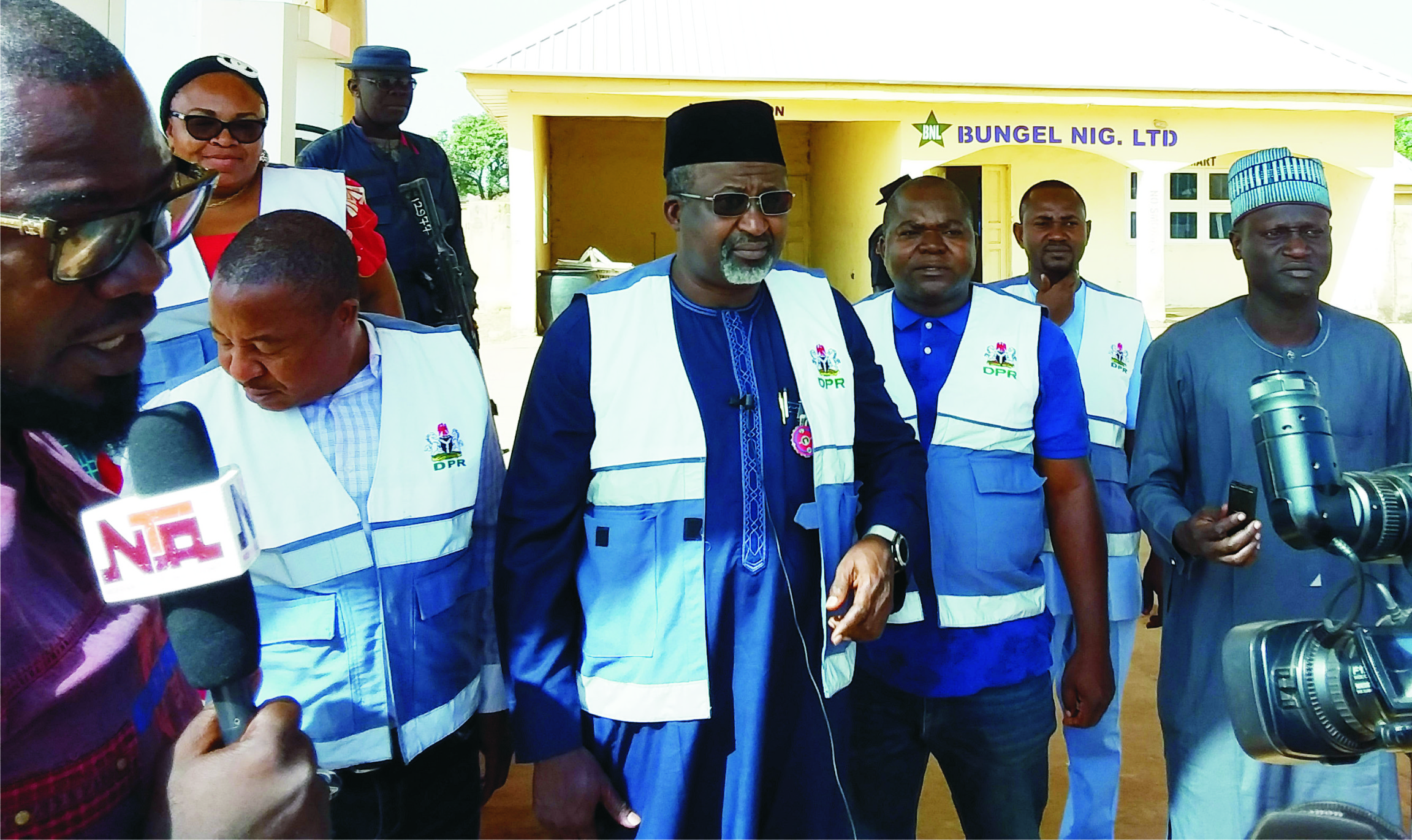Oil & Energy
Gas Shortage Stalls 16,231.5MW Power In Eight Days

The unavailability of gas required to operate gas-fired power plants stalled the generation of 16,231.5 megawatts of electricity in the first eight days of this year, the Federal Ministry of Power has stated.
Data obtained from the ministry last Friday showed that the lack of gas had remained a major constraint to efficient power generation in the country.
Over 70 per cent of Nigeria’s electricity comes from thermal power plants, and these plants require gas to function optimally in the generation of electricity.
The Tide learnt, last Friday in Abuja that the limited gas supply to gas-fired power generation stations since January 1, 2020 had stalled an average of 2,000MW of electricity daily.
Figures from the ministry showed that on January 1, 2 and 3, a total of 2,026.5MW of electricity could not be generated on the grid on each of the days as a result of gas constraint.
Also, on January 4, 5 and 6, the grid lost 1,900MW of power on each of the days as a result of the unavailability of gas.
On January 7 and 8, the lack of gas prevented the generation of 2,042MW and 2,410MW of power respectively.
A summation of the eight-day quantum of power that could not be generated as a result of gas constraint showed that the grid lost 16,231.5MW of electricity within the period.
The Executive Secretary, Association of Power Generation Companies, the umbrella body for the Gencos, Joy Ogaji, recently told newsmen that gas supply challenge was due to the inability of Gencos to adequately pay for the commodity.
She explained that there was no incentive for power generators to increase output from their plants.
The Gencos said their total generation capacity rose to 7,383.04MW in 2018 from 4,214.32MW in 2013, when the power sector was privatised by the Federal Government.
But Ogaji noted that the limitation of the transmission and distribution networks coupled with the lack of payments to the Gencos was a drag on increased generation.
She said, “From 2013, the power taken did not change at all. It was just hovering around 3,000MW until it rose to 4,000MW in some days, out of over 7,000MW of available generation capacity. And who pays for the difference?”
The Gencos spokesperson explained that the non-payment for generated energy was hampering the ability of the Gencos to pay for gas, which was why a large volume of power was stalled from being generated daily.
Oil & Energy
FG, MEMAN Chart Ways To Safe Petroleum Products Delivery

The Federal Government and key Petroleum Products marketers have proposed new measures to help curb rising cases of road accidents involving petrol tankers.
This followed recent incidents of road accidents resulting in cremation of hundreds of lives and causing extensive damage to properties.
Speaking at the Discourse organised by Mejor Energy Marketers Association of Nigeria (MEMAN) in Lagos, Thursday, with the theme “Improving Safe Transportation of Petroleum Products”, the Minister of State for Petroleum Resources (Oil), Heineken Lokpobiri, noted with dismay the number of casualties the country recorded recently due to tanker accidents.
Lokpobiri stressed the need for an enhanced training for tanker drivers, installation of detection leak devices as well as other safety systems that can assist drivers.
He called on Marketers and Federal Road Safety Commission (FRSC) to strengthen collaboration with stakeholders, especially in the training of tanker drivers.
On his part, the Minister of State for Petroleum Resources (Gas), Ekperikpo Ekpo, reaffirmed government’s commitment to providing enabling environment to ensure safety of petroleum products transportation.
Ekpo, who was represented by Engr. Abel, said consideration should be given to more safety means of transporting products like the pipelines and railway line.
He stressed the need for better training for drivers and implementation of safety regulations within the industry.
Earlier, Chairman, MEMAN, Huub Stokman, said the Association has elaborate training manual for members truck drivers.
Stokman insisted that more training programmes and consistent adherence to safety measures would help to curb road accidents involving tanker drivers.
Also speaking, the National President, Nigerian Association of Raod Transport Owners (NARTO), Yusuf Lawal Othman, called for support.
Oil & Energy
Benue To Pioneer Gas Production From Coal – NGEP

The Chairman, National Gas Expansion Programme (NGEP), Prof. Mohammed Ibrahim, has said that the production of coal bed methane, an unconventional form of natural gas extracted from coal, is set to begin in Benue State.
Prof. Ibrahim staed this while addressing newsmen at the end of a joint meeting of the National and State gas expansion committees with Benue State Governor, Hyacinth Alia.
He said the Federal Government is committed to expanding gas availability in Nigeria for domestic use and mobility.
Ibrahim added that extracting gas from unconventional coal sources rather than traditional hydrocarbon reserves is a way to boost gas availability.
“Essentially there are four areas of implementation that the committee has identified. One is to pioneer the production of gas from what you call coal bed methane, which means that Benue is going to pioneer in the country the production of gas not from conventional hydrocarbon, but from non-conventional coal just so that the nation will have an alternative source to gas availability”, he said.
Also speaking, the Chairman, Benue State Gas Expansion Programme, Dr. Emmanuel Chenge, said the gas expansion initiative would contribute to the economic transformation of Benue State.
“The good news is that Benue is set to join the league of gas-producing states and if we are conversant with what being a member of the gas-producing state is, it shows that Benue State will start getting derivatives from that sector of the economy”, Dr Chenge stated.
The National Gas Expansion Programme (NGEP) was established to boost the exploration and utilisation of gas in Nigeria and make Nigeria a gas-based industrial nation by increasing the use of gas for transportation, cooking, and industrialization.
Oil & Energy
NNPC Debunks Explosion Claim In Warri Refinery

The Nigeria National Petroleum Company Limited (NNPCL) has said there was no explosion at the newly refurbished Warri Refining and Petrochemical Company (WRPC).
NNPCL’s Chief Corporate Communications Officer, Olufemi Soneye, made this known in a statement issued on Friday night.
Soneye said reports claiming that there was an explosion at the Warri refinery were false and should be ignored and disregarded by the public.
According to him, the refinery was undergoing routine maintenance.
His statement read, “NNPC Ltd. wishes to clarify that there was no explosion at the Warri Refining and Petrochemical Company (WRPC). Any reports suggesting otherwise are completely false.
“On January 25, 2025, operations at WRPC Area 1 were intentionally curtailed to carry out necessary intervention works on select equipment, including field instruments that were impacting sustainable and steady operations.
“These intervention works are essential to ensure the production of on-specification finished and intermediate products, particularly Automotive Gas Oil (AGO) and Kerosene (Kero).
“The routine maintenance is progressing as planned, and Area 1 will be back in operation within the next few days.
“Despite ongoing interventions, over the past 11 days, AGO loading has been maintained at an average of eight trucks per day, with a sufficient supply available to sustain ongoing truck load-out operations”.
Soneye added that the NNPCL was committed to ensuring an uninterrupted supply of petroleum products from the refinery.
He said the company “appreciates the patience and cooperation of all stakeholders as it completes these essential maintenance activities”.
-
Niger Delta2 days ago
Ex-Ogbia Youth Leader Lauds Police, Others Over Kidnap Victims’ Rescue … Condemns Kidnapping
-
Business2 days ago
Nigeria Lost N120bn To Illegal Charter Operations – Report
-
Entertainment2 days ago
Alliance Française Hosts “French Up Your Career” To Boost Bilingual Job Prospects
-
Business2 days ago
Abolish Multiple Taxation In Rivers, Group Urges Govt
-
News2 days ago
NiMet Warns 19 States Of Impending Heat Stress, Urges Safety Precautions
-
Politics2 days ago
PDP Tackles Okpebholo Over Alleged Dwindling IGR In Edo
-
Rivers2 days ago
Fubara Handover Mile 1 Market Phase Two to Traders …Names Seven Man Mgt Committee
-
Business2 days ago
IWD: DBN Disburses N272b To Women Businesses

